Leftists in Negombo mobilise Catholics to promote schools take-over
by W.T.A. Leslie FERNANDO
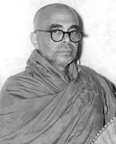 |
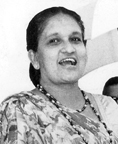 |
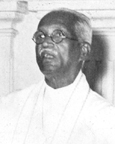 |
|
Ven. Meegomuwe Jinawansa Thera |
Sirimavo Bandaranaike |
C.W.W. Kannangara |
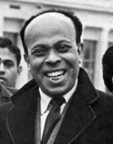 |
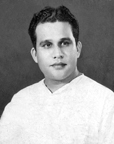 |
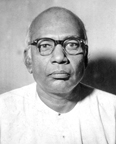 |
| Badi-ud-din Mohamed |
Lakshman Jayakody |
A.D. Jayasekera |
After the July 1960 General Election Mrs. Sirimavo Bandaranaike, the
leader of the SLFP was appointed to the Senate and was made the Prime
Minister of Sri Lanka. Thereby she became the first ever woman Prime
Minister in the world and brought fame to the country. Although she was
a novice in politics, she picked up quickly and soon became a versatile
leader. Besides the image she created as a real Kula Kaanthawa (noble
lady) clad in Osariya, made her a popular personality all over.
As the Premier of the SLFP Government for four years from 1960 to
1964 she effected all he controversial measures like the schools
take-over, nationalisation of banks, insurance companies and petroleum
products with firm determination and courage. Her period also saw the
development of local industry where so many products in the country from
a pin to the refrigerator were manufactured in our country. She was also
bold enough to overcome the 1962 coup staged by a section of the Armed
Forces.
Mrs. Bandaranaike won international fame as she was able to negotiate
a settlement in the border dispute between India and China. She was also
able to solve the problem of the Tamils of Indian origin without
permanent abode by the Sirimavo-Shastri Pact. She also settled the
Kachchativu issue in sri Lanka's favour after discussions with India.
The first controversial issue tackled by Mrs. Sirimavo Bandaranaike
was the schools take over. Before W. Dahanayake became the Minister of
Education in the 1956-59 government, he had expressed his opinion that
to make free education effective all the assisted schools should be
vested in the State. But when he was appointed the Minister of
Education, he became close to the Catholic Church and indicated that the
schools would not be taken over under him.
Besides W. Dahanayake was also a leader of the group of Minsters who
opposed the progressive policies of Philip Gunawardena in the 1956-59
Cabinet. At the March 1960 election it was the policy of the LPP led by
W. Dahanayake that the assisted schools would not be vested in the State
and the party got the support of few Catholic circles.
Under the British colonial regime, Catholics and Christians enjoyed
privileged position in the field of education. By 1939 both Catholics
and other Christians who comprised only 6.25% of the population obtained
73.2% of the Government grant for the denominational schools whereas the
Buddhists, the Hindu and the Muslims who constituted 93.7% of the
population received only the balance 26.3% of the grant. Besides the
higher education which was in English was limited to the affluent as it
was fee-levying.
In 1945, Dr. C.W.W. Kannangara implemented the free education scheme.
His next step was to take over the assisted schools, but it was shelved
when he lost from Matugama at the 1947 General Election. In 1952
election Dr. Kannangara was returned to parliament from Agalawatta and
it was said that he was not made the Minister of Education due to
pressure from the Catholic church.
At the 1960 July General Election, the SLFP declared that the
assisted schools would be vested in the State. Accordingly schools
take-over Act was passed in Parliament with a majority of 60 members.
Only UNP and Federal party voted against it. Nevertheless the Catholic
church was getting ready from 1956 to resist the schools take-over. In
1959 at a meeting held in Negombo His Grace the Archbishop said: "Our
schools should not be touched. We would fight to the end, even by
shedding blood to protect them".
When the schools were taken over, many Catholics at the instigation
of the Catholic church protected against it. Some Catholics forcibly
occupied schools and many schools in Catholic areas had to be closed.
This situation took a serious turn in Negombo and other Catholic areas
around it.
However it was the Leftists in Catholic Negombo itself, who
shouldered to mobilise Catholics in favour of the schools take-over.
Although at this time the MEP was against the Government, it vehemently
supported the schools take-over. Accordingly the LSSP, MEP and the CP in
Negombo area formed an organisation called 'The National Education
Protection Front in Catholic areas'.
The organisation mobilised Catholics in the coastal belt from Wattala
to Puttalam in favour of the schools take-over. It held meetings in
Catholic areas highlighting the benefits of the schools take-over, to
the poor Catholics. The leftist leaders in Negombo Dr. Hector Fernando,
Santiago Fernando, Cecil de Silva along with others like Ven. Meegomuwe
Jinawansa Thera and Senator A.D. Jayasekera addressed these meetings.
The organisation got the blessings of Lakshman Jayakody, the SLFP MP for
Divulapitiya.
The Catholic church which got exited over these developments also
formed an organisation called 'The Catholic Education Protection Front.
However, the SLFP Catholics in the area joined the Leftists in favour
of the schools take-over. Sarath Meepura, a bold and courageous teacher
and LSSP youth league leader who was teaching at the Dalupotha Roman
Catholic school released the journal 'Vipla' to create a public opinion
among Catholics in favour of the schools take-over. Over 5,000 copies of
this journal was sold in Negombo itself.
'The National Education Protection Front in Catholic Areas' handled
the situation carefully and avoided any confrontation. The leader of the
MEP in Negombho and veteran writer Santiago Fernando wrote a series of
articles in the 'Sinhala' journal illustrating the benefits of schools
take-over to the masses.
Some Catholic teachers openly supported the schools take-over. The
Catholic parents who realised that the education of their children would
be adversely affected by the closure of schools began to support the
move. Gradually there developed a strong public opinion among Catholics
themselves in favour of the schools take-over.
In this background Cardinal Graciano of India who came to Sri Lanka
to study the schools take-over issue advised the Catholic church in Sri
Lanka to give up the struggle and the church retreated. In the process
it managed to get permission to continue with some elite schools like
St. Joseph's and St. Peter's Colleges as non fee-levying private
schools.
In the schools take-over issue Badi-ud-din Mohamed, the Minister of
Education at that time, tactfully dealt with the situation without
leaving any room for any bloodshed. Although the Prime Minister Mrs.
Sirimavo Bandaranaike was educated at St. Bridget's Convent, a leading
Catholic school, she stood firm and never yielded to any pressure from
the Catholic church. She always spoke with pride over the schools
take-over until her death.
The schools take-over was indeed a blessing for the poor Catholics in
Sri Lanka as well as to the other children. Before the schools take-over
it was very rarely that the child of a poor fisherman or a carpenter
could enter the university from a prestigious Catholic school. Now the
higher education has reached even the poorest of the poor Catholics.
This is evident from the Puttalam District which has the largest
Catholic percentage in Sri Lanka except for Mannar District which had a
thin population. Every year many among the poor in Puttalam District
pass out as professionals.
Although the schools take-over was a great victory to the SLFP
Government it had to face enormous problems in 1961. When the Government
set out to change the langauge of courts from English to Sinhala, the
Federal Party organised a 'Sathyagraha' campaign as there were no
regulations for the courts to function in Tamil in the Northern and the
Eastern provinces. The Government declared the emergency to suppress it
and kept the leaders of the Federal Party on detention for over six
months. The people too were dissatisfied because of the increase in
prices and scarcity of goods.
By this time LSSP and CP that supported the Government began to move
away from it. The two parties refrained from voting for the Throne
Speech. At the end of 1961, there was a series of strikes in banks, port
and the transport sector. The Government mobilised the Army and the Navy
to operate the services.
From the beginning the MEP was against the Government. Now a trade
union front of the LSSP, MEP and the CP was formed against the
suppression of strikes by the Government. This front organised a strike
for January 5, 1962. The strike was a success and it disrupted the work
in industry, offices, transport, post and communication.
Towards the end of January 1962 an attempted coup by high ranking
military and in the Police was discovered. The Leftist parties condemned
the coup and the MEP and the CP called off the strike in the harbour as
a show of goodwill to the Government even without informing the LSSP.
The strike came to an end in due course. The abortive coup in 1962 has
been interpreted as a move orchestrated by the Catholic aristocracy
because of the schools take-over. |

